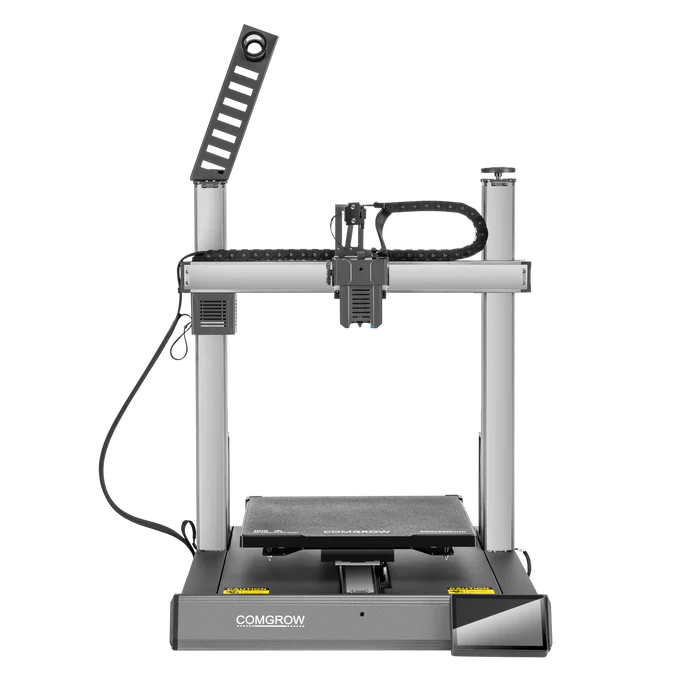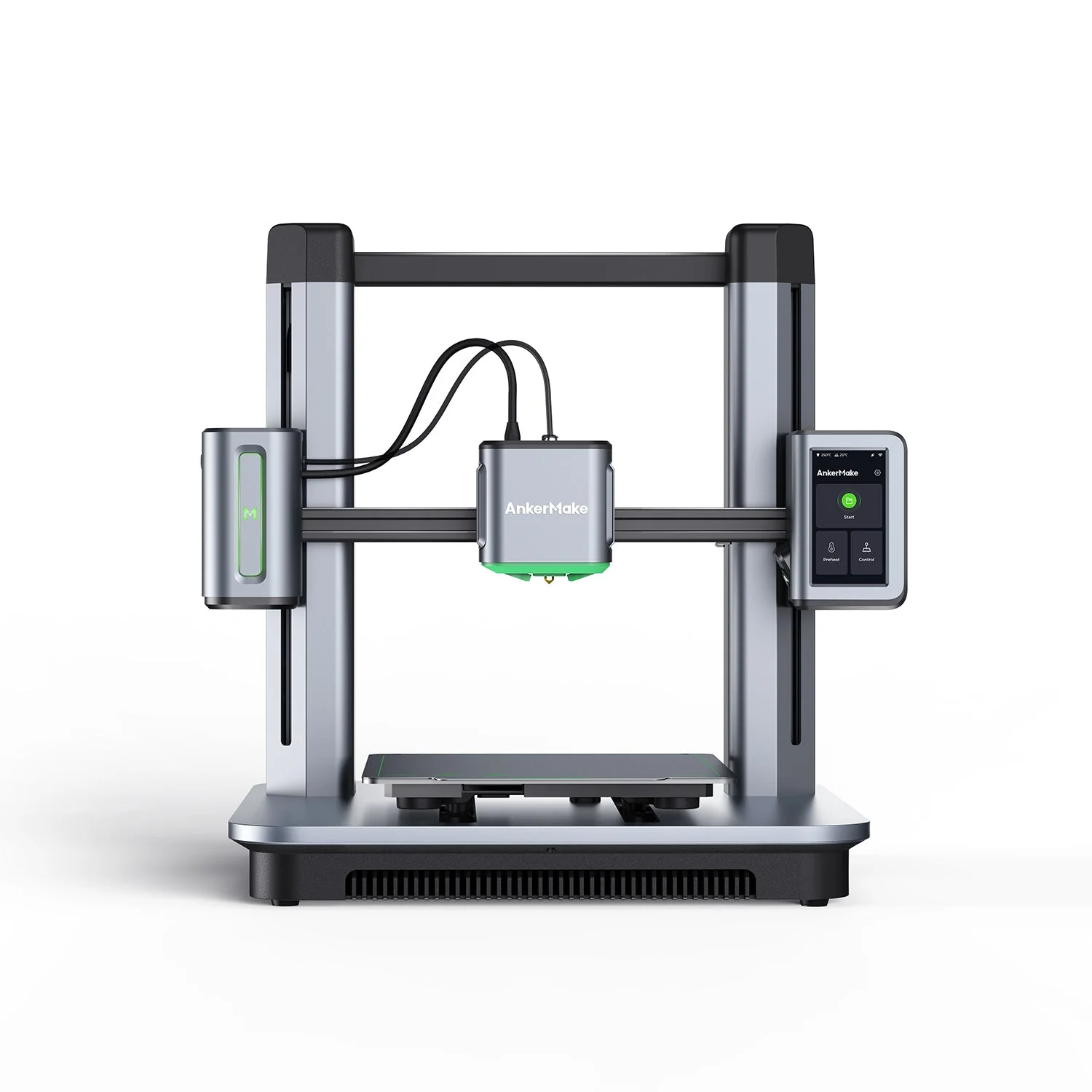Compare Comgrow T300 vs M5
Comparison between the best 3D printers
Choose the best 3D printer at the best price. The cheapest 3D printers are here.
Buy a 3D printer here with 3D Fila.
 |
 |
|
| Model | Comgrow T300 |
M5 |
| Printing Material | Filament | Filament |
| Buy Filament for Sovol Comgrow T300 | Buy Filament forAnkerMake M5 | |
| Estimated price | $449,00 | $497,00 |
| Manufacturer | Sovol | AnkerMake |
| Release Year | 2024 | 2023 |
| Print Volume [mm] | 300x300x350 | 235x235x250 |
| Printer Size [mm] | 503x631x831 | 502x438x470 |
| Weight [kg] | 17 | 12,6 |
| Power Loss Recovery | YES | YES |
| Enclosed printer | NO | NO |
| Bed Leveling | Automatic | Automatic |
| Filament End Sensor | YES | YES |
| Bed type | Heated | Heated |
| Power supply system | Direct Drive | Direct Drive |
| Standard nozzle | 0,4 | 0,4 |
| Maximum Nozzle Temperature [°C] | 300 | 260 |
| Maximum Bed Temperature [°C] | 100 | 100 |
| Maximum printing speed [mm/s] | 600 | 500 |
| Filament holder | YES | YES |
| Camera for supervision | NO | NO |
| Recommended filaments | PLA, PETG, PET, TPU, PA, ASA, PC, PLA CE, PA-CF, PET-CF | PLA, PETG, ABS |
| Recommended slicers | Bambu Studio, Super Slicer, Cura, Prusa Slicer, Orca Slicer | AnkerMake Studio (macOS, Windows), Simplify3D, Ultimaker Cura, PrusaSlicer |
| Maximum Resolution [mm] | 0,1 | 0,1 |
| Processor | 64 bit | |
| Display | Touchscreen 5'' | Touchscreen 4,3'' |
| Power Supply | 150 W | 350 W |
| Connectivity | USB, WiFi | Wi-Fi, USB-C, OTA Upgrade |
| Operating systems | Windows, Linux, Macbook | Windows, Linux, Macbook |
| Date of registration in the system | 2024-05-10 | 2024-07-08 |
| Release date | 2024 | 2023 |
| Extra features | The Sovol Comgrow T300 printer stands out for its technological innovations and advanced features. With a print size of 300mm300mm350mm, the T300 offers true linear rails on all axes, ensuring greater stability. Its Klipper-based intelligent core and 64-bit microcomputer increase printing speed and quality through pressure advancement and input shaping. The extruder with a gear ratio of 6.5:1 allows for more precise material control, optimizing the printing of flexible materials. In addition, the T300 features a rapid filament cooling system with a high-speed fan and a circular duct piece that improves cooling efficiency. With a 4.3-inch high-refresh rate touchscreen and an 81-point automatic leveling system, the T300 simplifies the preparation and execution of 3D prints. | The AnkerMake M5 printer stands out for its impressive print speed, reaching up to 500mm/s. It features AI print monitoring, an integrated camera for creating timelapses, auto-leveling bed with pressure sensor, direct extruder, flexible PEI-coated build plate, and Wi-Fi and USB-C connectivity. Assembly is quick and easy, and the printer is designed to deliver high print quality and ease of use. |
| Support for multiple colors and materials (AMS and CFS) | NO | NO |
Notes * |
||
| Cost-benefit | 8 / 10 | 7 / 10 |
| Hardware | 3.6 / 10 | 4 / 10 |
| Tela | . | . |
| Print volume | 4 / 10 | 3 / 10 |
| Performance | 5 / 10 | 4 / 10 |
Conclusion |
| In comparing the Sovol Comgrow T300 and the AnkerMake M5, both printers present unique advantages that cater to different user needs, all while being competitively priced. The Comgrow T300 excels with a larger build volume and higher maximum printing speed, making it an ideal choice for users requiring more extensive printing capabilities. Its advanced features, such as the Klipper-based core and superior cooling system, promise enhanced print quality and precision, especially with flexible materials. On the other hand, the AnkerMake M5, despite being slightly smaller in print volume and speed, offers impressive functionality with features like AI print monitoring and quick assembly. It stands out for its user-friendly interface and robust connectivity options, which can appeal more to beginners or those seeking ease of use. Both printers have automatic bed leveling and power loss recovery, ensuring reliability during operations. In terms of support for materials, the Comgrow T300 provides a broader selection, which may be a pivotal factor for users who intend to work with diverse filament types. Ultimately, your choice should align with specific needs—whether you prioritize print volume and speed (Comgrow T300) or user-friendly features and ease of setup (AnkerMake M5). Regardless, both are commendable options in the 3D printing market, balancing performance and cost-effectiveness effectively. |

